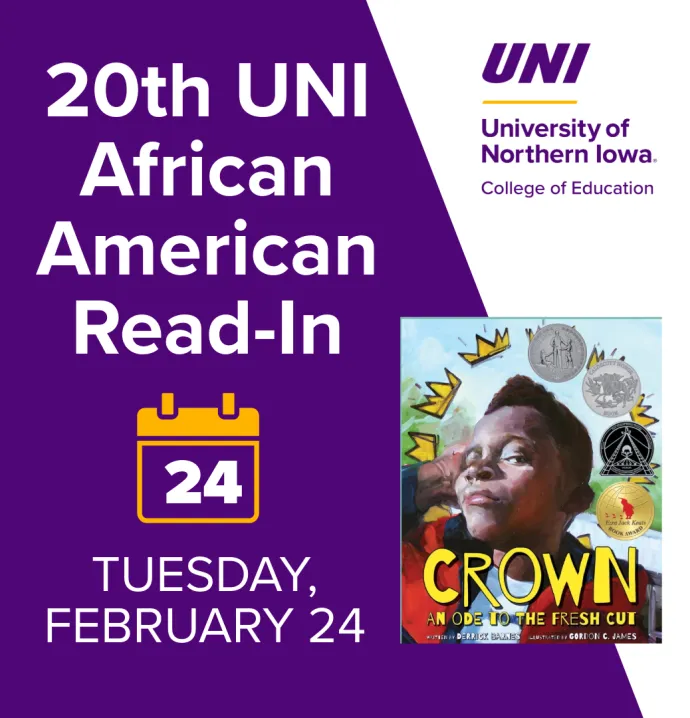5 Questions with Michael Graziano
5 Questions with Michael Graziano
When local public school teachers started emailing Michael Graziano, UNI professor of religions, for advice on how to handle religion in the classroom he saw an unmet need. Now, a new $10,000 grant from the Whiting Foundation will allow Graziano to develop a seminar on religion for public school teachers. From how to be inclusive of religious diversity, to how to discuss religion in school curriculum, Graziano has the expertise to help teachers navigate these situations — and a vision for an inclusive future. Here, he discusses his research interests and how they led to this latest grant project.
You have a doctorate in religion and teach in UNI’s Department of Philosophy and World Religions. What exactly does education in this area entail in a university setting? Is it different than, say, a Doctor of Theology or attending seminary school? What aspects of religion do you focus on?
I’m in the academic study of religion which, while it sounds similar to theology, is actually quite different for a number of reasons. Theology would be concerned with questions about what actually is our capital-T truth. The academic study of religion is studying people who make those claims. So, instead of making claims about what God is or is not, or what is true or what is not, we study how and why people create claims to power. My own subspecialty is the history of religion, particularly in the U.S., so I’m interested in how religious organizations have interacted with the law, how they make their claims and how they get people to follow them; how the U.S. government interacts with, manipulates and influences ideas about religion, and how religious groups and institutions interact with the government. The kind of applied research that I do, especially since coming to UNI, is dealing with public schools and how teaching about religion and religious diversity play out in the classroom.
You recently received a grant to put together a seminar on religion curriculum in public school classrooms. Where did this idea come from?
A number of teachers who I’d never met before at various Iowa public schools had found me online and would send me emails with questions. They’d ask things like, ‘Is this thing that we’re doing legal?’ ‘Can our tenth grade choir class perform at a church?’ All these things about religion and law that they weren’t quite sure about. The first thing I’d always tell them is that I’m not a lawyer and I can’t give legal advice, but I can talk broadly about what the guidelines are today. I kept getting these emails and I thought, ‘Let’s formalize this. Let’s make something out of this.’ So, we pitched the Whiting Foundation. They’re interested in supporting projects that demonstrate the value of the humanities in the public square. This was a great fit for UNI, because UNI is very interested in public engagement and service learning. So, the idea was to get funds to establish a summer workshop where teachers could come and get some help on the specific challenges they were facing in the classroom.
What are some examples of struggles facing teachers with religion in the classroom?
That would probably boil down into two main areas. One of them is how to think about religion as a kind of diversity in the classroom. So, that might be how you interact with religiously diverse students, parents or community members. The other area would be actually teaching about religion. So, you know, if you're in high school world history class, and you're scared to talk about the Crusades because it involves religion, that's not a good situation to be in, because it's kind of hard to talk about that without talking about religion. So, actually thinking about how does this show up in the curriculum, and what are some good best practices for teaching about it in school?
What is your timeline for the project and what work will go into it over the next few months? Has the COVID-19 pandemic changed any of that?
There’s a pilot program we’re going to run this summer as part of Waterloo Schools’ summer professional development program. That very well could get delayed or moved [due to COVID-19], but we’ll roll with it as best we can. For now, the first pilot program is this summer. The idea is to get feedback from interested teachers on the kind of questions they’re dealing with, which will then shape the actual grant funded project in summer 2021. That’s when we’ll have the first cohort of teachers on campus as a part of the first class.
What would you say is the goal of the project?
I want the project to promote diversity and inclusion in the classroom. I also want the project to help best prepare kids for being people in a global society, as we’re increasingly interconnected. The other one is just to help out teachers. Those are my three big practical goals, and I think all three of those demonstrate the value that UNI can bring to the community. But also the community has a lot of knowledge and expertise that it can share with us. This is not academics parachuting into public school teachers’ classrooms to tell them how to do their job, because they're already very good at the job. What we want to do is respond to the challenges that are organically emerging for them. In that kind of working together, I think it'll be a really excellent model of engaged learning.




